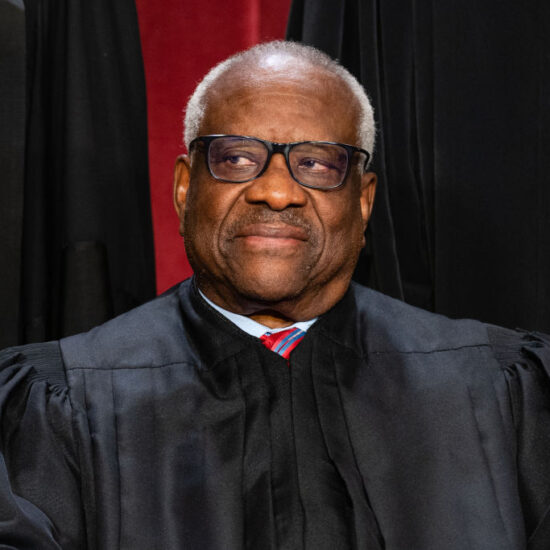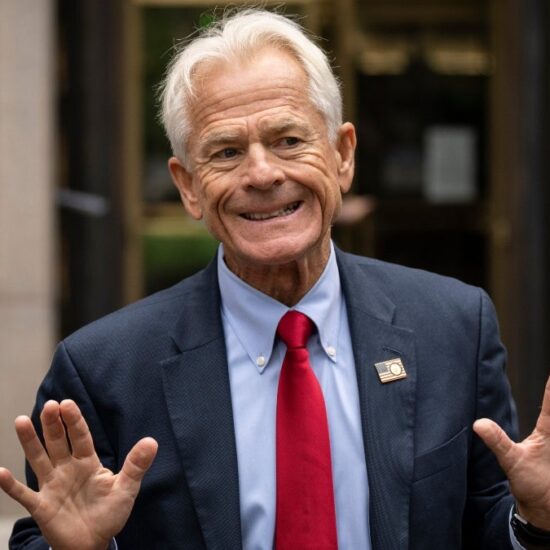
The House committee investigating the Jan. 6 attack on the Capitol has laid out its case that Donald Trump knew he lost the 2020 election, and that he nevertheless spread lies about election fraud as part of a broad effort to overturn Joe Biden’s win, pressured state election officials to change the results, orchestrated an effort to send fake electors to Washington, and used multiple tactics to persuade Vice President Mike Pence to name Trump the winner, including inciting a mob to go after him.
With each consecutive hearing, the spotlight on the Justice Department has grown brighter, as has interest in whether Attorney General Merrick Garland will choose to prosecute a former president. New subpoenas were issued by federal prosecutors investigating the attack in Georgia and Virginia on Wednesday, the Washington Post reported, a potential sign that the Justice Department is expanding the scope of its case. A separate investigation by Fulton County District Attorney Fani Willis in Georgia has empaneled a grand jury and appears to be examining whether Trump violated state law when he asked Georgia’s Secretary of State, Brad Raffensperger, to “find” enough votes for Trump to win.
But despite all of the bombshells the committee has put forth about Trump’s efforts, legal experts say the threshold that the Department of Justice needs to meet before it is willing to prosecute the former President is far higher than much of the public realizes.
Bringing charges against Trump related to the Capitol attack could require showing evidence that he had knowledge beforehand of specific plans to breach the Capitol Building and disrupt the proceedings, says Solomon L. Wisenberg, a former deputy independent counsel during the Clinton-era Whitewater investigations. “It’s a high bar,” Wisenberg says. “What did Trump do? Did he conspire? Did he have knowledge beforehand that this was going to be attempted if he wasn’t successful in convincing VP Pence?”
Garland said earlier this year that the Justice Department’s work was not done and that the department “remains committed to holding all January 6th perpetrators, at any level, accountable under law.”
Like most complex criminal probes, prosecutors have started with what they see as the front-lines actors of the crime, the people who allegedly burst through police lines and broke into the Capitol on Jan. 6 with the goal of stopping the certification of election results. The Department of Justice has arrested more than 840 people related to the attack and charged hundreds of them. That includes more than 280 defendants who have been charged with corruptly obstructing, influencing, or impeding an official proceeding, or attempting to do so. Federal prosecutors have also charged members of the far-right group the Proud Boys with seditious conspiracy in relation to the Capitol attack and that trial is set to move forward later this year.
Federal prosecutors may consider whether there is enough evidence to charge Trump with aiding a seditious conspiracy, or other allegations such as conspiracy to defraud the United States and obstructing an official proceeding.
Obstructing a congressional proceeding is a crime, Wisenberg says. “So who knew about it and helped it and planned it? That’s the big question and that’s what Garland should be looking at. And if you look at the way that these indictments are coming up, the Proud Boys and all that, I assume they’re building it from the bottom up.”
Melanie Sloan, a former federal prosecutor who is now a senior advisor to the government watchdog group American Oversight, says that it will be “shocking” if the Department of Justice doesn’t bring charges against people around Trump who, the committee has shown, were orchestrating the effort to overturn the election results. The prosecutions so far have targeted “the lowest level players, the people who were completely responsible for their actions for going into the Capitol but manipulated by much higher folks,” Sloan says, adding that the department needs to ultimately pursue those “higher folks” as well.
“It would be completely wrong for those people not to be held criminally responsible for their actions,” she says.
The key to making a case against Trump may be John Eastman, a lawyer who advised Trump after the election and insisted that alternate slates of electors should be sent to Washington to vote Trump into office. “The best path that DOJ would have would be to build a case against Eastman and then flip him on Mr. Trump,” says Renato Mariotti, a former federal prosecutor.
But as the investigation moves farther away from the physical attack on the Capitol Building, the harder it gets to assemble evidence to prove criminal intent. For example, it would be difficult for prosecutors to prove that Trump, who isn’t a lawyer, was in a position to assess the legality of Eastman’s plan to seat fake electors, says Mariotti.
Charging Eastman with giving legal advice about how the election results could be overturned would also be difficult, Wisenberg says. For one, advocating a constitutional interpretation, even one that isn’t widely shared, could be considered protected speech. “I’m very skeptical of the efforts to turn into a crime the mere idea that you are not proceeding according to the Electoral Count Act or that you are advising Vice President Pence that he has the power to refuse to certify,” Wisenberg says.
Echoes of Watergate
Fifty years ago, prosecutors investigating criminal activity in the Nixon administration used the Senate investigation into Nixon’s Watergate abuses as a jumping off point. Richard Ben-Veniste, a former special prosecutor during the Watergate investigation, says the Jan. 6 committee’s investigation could serve a similar function, providing the Justice Department valuable information that Garland’s team can expand upon.
“In Watergate, we built on the evidence gathered by the Senate select committee on Watergate. But we were able to go further in compelling testimony and of course obtaining critical evidence, most strikingly, in the form of presidential tape recordings,” Ben-Veniste says.
Over four dramatic hearings, the Jan. 6 committee has brought out new details that prosecutors are likely to examine as they decide whether to bring criminal charges against Trump for aiding a conspiracy. Rep. Liz Cheney, a Republican from Wyoming and the committee’s vice chair, said at the first hearing on June 9 that when Trump’s White House staff was asking him to call off the violent mob that had breached the Capitol Building, Trump initially refused, saying the rioters were “doing what they should be doing.”
The committee has tried to prove that Trump knew was being dishonest when he lied in public about election fraud, which could be a contributing factor in establishing criminal intent on Trump’s part. The committed aired testimony during its June 13 hearing demonstrating that Trump continued to repeat the lie that he had won the election even after he was told by campaign officials, Acting Attorney General Jeffrey Rosen and Acting Deputy Attorney General Richard Donoghue that his election fraud claims had been disproven by the Department of Justice.
At the committee’s third hearing on June 16, lawmakers revealed evidence that Eastman told Trump that Eastman’s own plan to get Pence to block the certification of Electoral College votes in Congress was illegal, according to testimony. The committee also revealed that Eastman later contacted Trump’s personal lawyer, Rudy Giuliani, asking for a presidential pardon. “I’ve decided that I should be on the pardon list, if that is still in the works,” he wrote, according to an email obtained by the House panel.
On June 21, the committee showed a taped deposition from Republican National Committee chair Ronna McDaniel in which she said that Trump was on a phone call during which the RNC was asked to help gather fake slates of electors, demonstrating his direct involvement in that scheme.
The fifth hearing, scheduled for Thursday afternoon, will focus on Trump’s interactions with his Justice Department after the election.
As federal prosecutors explore the revelations from the hearings, they can potentially dig deeper using methods that are unavailable to a congressional committee. “For example,” Ben-Veniste says, “the department can compel through subpoenas the testimony of reluctant individuals and if necessary grant immunity.”
Granting immunity “is a very potent arrow in the quiver of federal prosecutors,” he says.
Trump’s next move
Amid all of the fraught calculations Garland must make as he considers charging a former president, he also is contending with speculation that Trump may announce his intention to run again in the coming weeks. Such a move would heighten the potential political fallout if the Department of Justice chose to charge Trump, raising concerns that it was getting embroiled in an election. It could prompt Garland to appoint a special counsel to investigate Trump in order to avoid the perception of a conflict of interest.
But Rep. Jamie Raskin, Democrat from Maryland and a member of the Jan. 6 committee, tells TIME that such fears should not deter Justice officials from looking closely at what crimes Trump may have committed. He suggested that any other course of action would set a horrible precedent. “If that’s the case, then, you know, defense lawyers across the country should realize that’s the first thing they should tell their murder clients and rape clients to do: announce for president,” Raskin says.
Norm Eisen, a Brookings Institute senior fellow who served as special counsel for the House’s first impeachment of Trump, says those convinced Garland won’t pursue Trump are jumping to conclusions. “I think it’s premature to say it’s reluctance,” he says. “The people who feel it’s reluctance just don’t understand the pace of federal criminal investigations.”
Indeed, the House committee is continuing to secure more evidence. Rep. Bennie Thompson, Democrat of Mississippi and the chair of the committee, told reporters on Wednesday that he was postponing a hearing scheduled for Monday about the actions of the Proud Boys and Oath Keepers because the committee needed time to review new material it had received. More hearings will be scheduled for July, Thompson said.
There are also signs that federal prosecutors are hoping to delve further into what the House committee has uncovered. On June 15, federal prosecutors wrote a letter to Timothy Heaphy, the House Select Committee’s chief investigative counsel, asking the committee to speed up its plans to hand over transcripts of all of the witness interviews the committee has conducted.
—With reporting by ERIC CORTELLESSA
More Must-Read Stories From TIME














